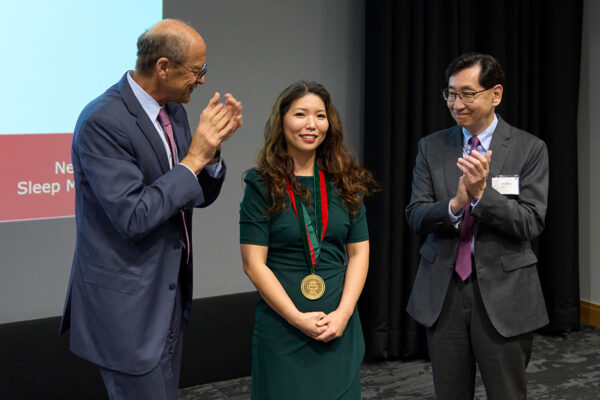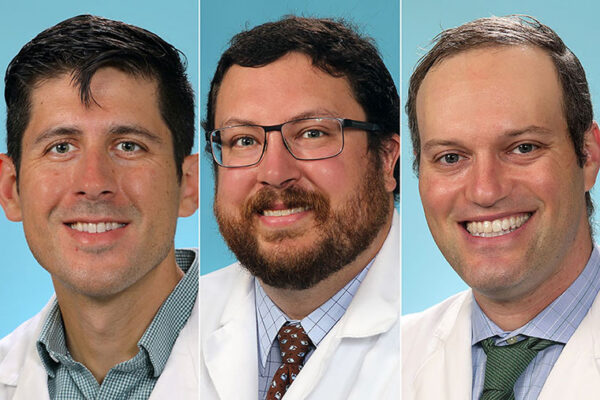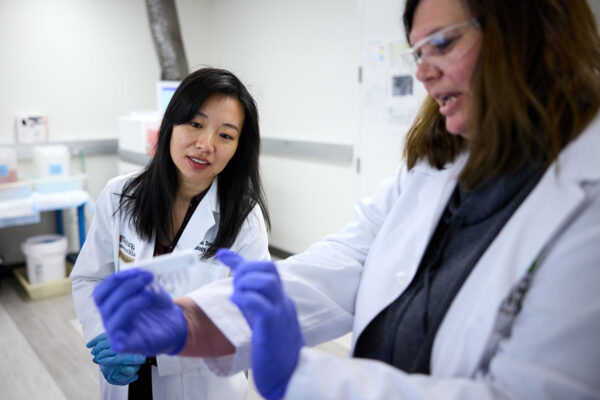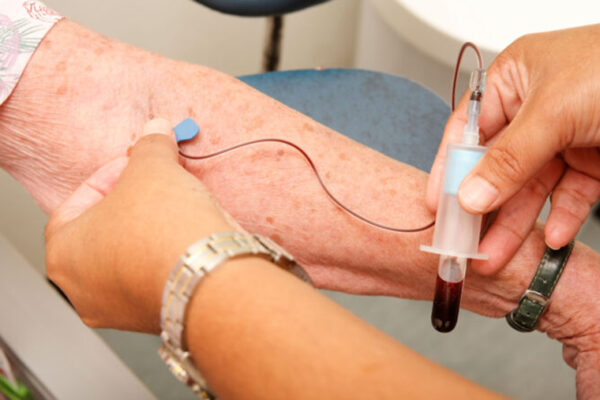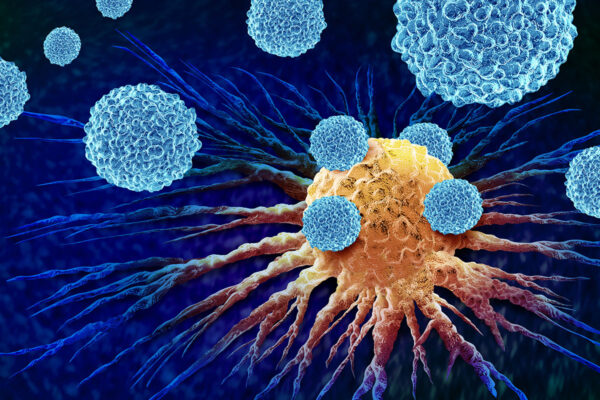Neurons help flush waste out of brain during sleep
Scientists at Washington University School of Medicine in St. Louis have found that brain waves help flush waste out of the brain during sleep. The findings could lead to new approaches for treating Alzheimer’s disease and other neurological conditions.
Shellhaas elected to American Epilepsy Society board
Renée Shellhaas, MD, the David T. Blasingame Professor of Neurology at the School of Medicine, has been elected to the American Epilepsy Society board of directors.
Washington University joins NIH cancer screening clinical trials network
Washington University School of Medicine in St. Louis is one of seven U.S. institutions joining a new national clinical trials network launched by the National Cancer Institute, part of the National Institutes of Health (NIH), to investigate emerging technologies for cancer screening, with the goal of reducing cancer-related illnesses and deaths.
Ju named Morriss Professor
Neurologist Yo-El Ju, MD, a physician-scientist whose discoveries have illuminated the complex relationship between sleep and neurodegenerative disease, has been named an inaugural Barbara Burton and Reuben M. Morriss III Professor at Washington University School of Medicine in St. Louis.
American Society for Clinical Investigation honors physician-scientists
Three early-career scientists at the School of Medicine have been honored with the Young Physician-Scientist Award by the American Society for Clinical Investigation (ASCI). They are Tarin M. Bigley, MD, PhD; Jeffrey W. Brown MD, PhD; and Drew J. Schwartz, MD, PhD.
Study looks at ways to sustain public health programs
State tobacco control programs that used a new training model were better able to sustain operations, finds a new study from the Brown School at Washington University in St. Louis.
Medicare approves genetic test for solid tumors
GatewaySeq, a genetic test that identifies cancer mutations in solid tumors and that was developed by researchers at Washington University School of Medicine in St. Louis, has been approved for reimbursement by the Centers for Medicare & Medicaid Services.
Two WashU faculty awarded Sloan Research Fellowships
Two early-career Washington University faculty members have been awarded a prestigious Sloan Research Fellowship: psychologist Zachariah Reagh, in Arts & Sciences, and neuroscientist Gaia Tavoni, at the School of Medicine.
Alzheimer’s blood test performs as well as FDA-approved spinal fluid tests
Researchers at Washington University School of Medicine in St. Louis and Lund University in Sweden showed that a blood test is as good at identifying people in early stages of the disease as cerebrospinal fluid tests approved by the Food and Drug Administration for Alzheimer’s diagnosis.
New cell-based immunotherapy offered for melanoma
Physicians at Siteman Cancer Center, based at Barnes-Jewish Hospital and Washington University School of Medicine in St. Louis, will be among the first in the nation to administer a new cell-based immunotherapy to eligible patients with melanoma.
Older Stories



